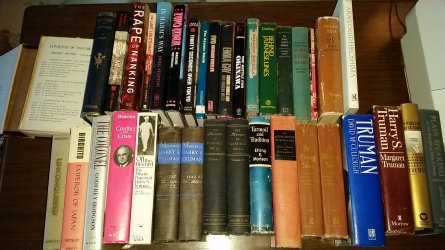Despite Einstein ' s pleas to develop the bomb? Einstein had zero to do with the development of the bombs, not even Einstein ' s formulas were used, Einstein did write a letter urging that the bombs be built.Egghead responsibility? Pop history says that Oppenheimer and Einstein were "surprised" or "offended" or "angered" by the way the Truman administration dropped their creation on innocent civilians but history indicates that the scientists were the biggest proponents of testing their creation on society. When the nuclear shit hit the fan the eggheads ran for cover.
Oppenheimer, was he for the bomb before he was against it? He just thought he was building a firecracker to scare people, right.

